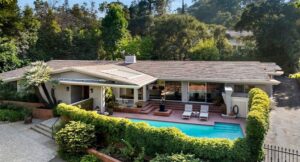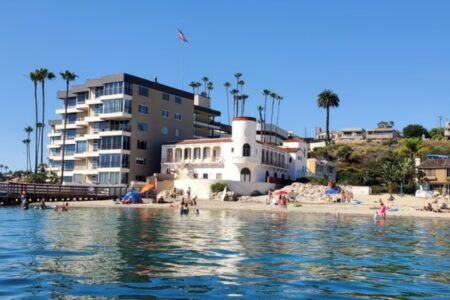
[photo credit: CALTECH]
The PhD candidate’s lecture, “How to Build a Solar System,” is part of Caltech’s monthly free public Stargazing Lecture Series.
The event runs from 8 p.m. to 10 p.m. on July 25, with doors opening at 7:30 p.m.
The program includes an 8 to 8:45 p.m. public lecture, followed by 8:45 to 9:45 p.m. panel Q&A and guided stargazing.
The lecture and Q&A will take place regardless of weather, while telescopic stargazing is weather-dependent.
“The formation of the solar system is certainly a complex process, so the talk will mainly focus on explaining the broad mechanisms and events that sculpted its major features,” Carvalho explained.
“The steps we’ll be taking in time are logarithmic: starting with the first 100,000 years of the sun’s formation, then into the 1 to 10 million years during which the protoplanetary disk existed, followed by the 100 Myr over which giant collisions formed the terrestrial planets.”
The timing couldn’t be more apt. As of this year, astronomers have confirmed more than 5,900 exoplanets—a dramatic leap from the first discovery of 51 Pegasi b in 1995.
This explosion has fundamentally challenged conventional models of how solar systems form.
“Two of the most exotic families of planetary systems we have discovered to date are those with ‘hot Jupiters’ and the many systems that have tightly packed systems of two to four planets in orbits smaller than Mercury’s,” Carvalho noted.
These discoveries raise a central puzzle: “How can a single planet formation model produce our solar system, hot Jupiter systems, mini-Neptunes, and these compact terrestrial planet systems? That is the question I will strive to answer during the talk.”
Carvalho’s research focuses on FU Orionis-type outbursts—sudden brightness increases in young stellar objects that “can rapidly deplete large amounts of material from the circumstellar disk,” potentially shaping planetary formation.
No reservations are required, and the lecture will be live-streamed on Caltech’s YouTube channel at https://www.youtube.com/live/A0pFhjQ3XWE.
Stargazing Lecture: How to Build a Solar System will run on Friday, July 25 at 8:00 p.m. to 10:00 p.m. Cahill Center for Astronomy and Astrophysics, 1200 E. California Blvd., in Pasadena. For more call (626) 395-4169 or visit https://www.caltech.edu/campus-life-events/calendar/stargazing-lecture-90163. Tickets: Free.





